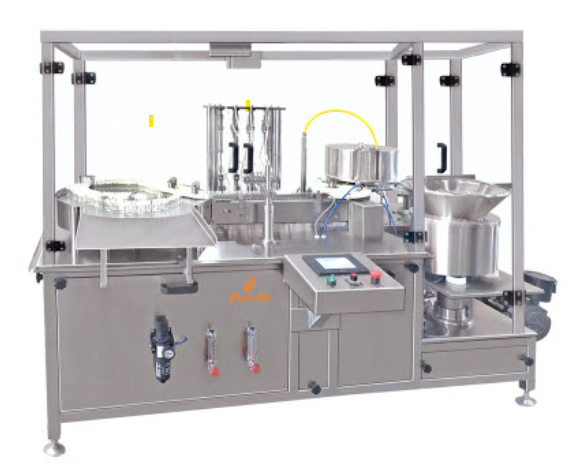In the fast-paced world of pharmaceutical manufacturing, efficiency is paramount. Injectable vial filling machines have become indispensable in streamlining production processes. But how exactly do they enhance production efficiency? Let's delve into the mechanisms and benefits of these machines.
Understanding Injectable Vial Filling Machines
Injectable vial filling machines are specialized equipment used to fill vials with liquid medications accurately. These machines come in various types, including automated, semi-automated, and manual versions, each designed to meet different production needs.
Streamlining the Production Process
One of the primary ways these machines enhance efficiency is through automation. By automating the filling process, manufacturers can ensure precise filling volumes consistently. This automation reduces variability and increases the overall reliability of the production process.
Reduction in Manual Labor
Manual filling processes are prone to human error, which can lead to inconsistencies and product recalls. Injectable vial filling machines minimize these risks by automating repetitive tasks. This not only improves accuracy but also reduces labor costs, as fewer personnel are needed to oversee the production line.
Increase in Output
The speed and efficiency of injectable vial filling machines significantly increase production output. These machines can handle large batches in a shorter time compared to manual methods. High-speed filling ensures that pharmaceutical companies can meet the growing demand for injectable medications.
Ensuring Sterility and Quality
Maintaining sterility is crucial in pharmaceutical manufacturing. Injectable vial filling machines operate in sterile environments, reducing the risk of contamination. Additionally, these machines incorporate quality control measures to ensure that each vial meets stringent industry standards.
Advanced Features of Modern Injectable Vial Filling Machines
Modern vial filling machines are equipped with advanced features such as integration with other systems, real-time monitoring, and automatic adjustments. These features enhance the overall efficiency and flexibility of the production process.
Impact on Supply Chain
By increasing production efficiency, injectable vial filling machines help pharmaceutical companies meet market demand more effectively. This efficiency reduces lead times and improves the reliability of the supply chain.
Cost-Effectiveness
While the initial investment in injectable vial filling machines can be significant, the long-term savings are substantial. These machines reduce labor costs, minimize waste, and increase output, resulting in a favorable return on investment.
Regulatory Compliance
Adhering to regulatory standards is essential in pharmaceutical manufacturing. Injectable vial filling machines are designed to comply with industry regulations, ensuring that the final products are safe and effective for patient use.






